Description
Koji Fermented Kurocha (麹黴黒茶) is a highly unusual Japanese dark tea that is fermeted for a period of one month with the help of yellow koji. Made from crude tea from Yabukita cultivar plants grown in Honyama in Shizuoka, it produces a unique flavour that is very different to most other teas in the dark category. The refreshing complex taste is both sweet and tangy, featuring a thick mouthfeel and a lasting tangy aftertaste. We source this tea via a specialist refining factory in Shizuoka who work directly with the farmers. They provide end processing and refining at their small factory in Shizuoka but also support smaller farmers in distributing their teas, developing new tea types and improving their techniques.
This Koji Fermented Kurocha comes from an artisanal tea business based in Aoi Ward in Shizuoka Prefecture. This consists of a small tea factory and a few tea gardens around Shizuoka in places like Okochi and Honyama. It is run by a team of young enthusiasts who share the same story. Growing tired of hectic life in big cities, they decided to come together and start a tea business that is completely opposite to their previous city life. Their focus is very much on developing and crafting new tea types. As traditional tea production is declining in Japan, this is a very much needed injection of energy and innovation that will hopefully contribute in a different way to preservation of Japanese tea craft in the longer term.
Their factory feautures new modern machinery that enables them to make both crude tea for further refining at refining factories, but also finished product, such as oolong tea and black tea. The two oolong teas (Benifuki and Yabukita) are already showcasing their skill at making these. But they also have other highly experimental teas, such as this Koji Fermented Kurocha and whisky and sake barrel aged teas (coming to our shop soon!). They are also taking over more of the abandoned tea gardens. As we witnessed on our recent visit to Shizuoka, there are quite a few of those!
Honyama is a terroir famous in Japan for producing particularly fine teas that has a tea growing history of over 800 years. The fields are located on steep slopes surrounding the Warashina and Abe Rivers that often produce foggy conditions. This fog and less exposure to the sun acts as a natural way to slow down the growth of the tea plants, resulting in richer and more fully flavoured teas. This Koji Fermented Kurocha utilises the leaves of Yabukita cultivar plants and it is made from aracha (荒茶), or crude tea.
Here it is important to gain a quick understanding of green tea manufacturing in Japan, especially so in Shizuoka. The tea farmers harvest the tea leaves and carry out initial processing of steaming, cooling, rolling and drying. This is done in their own smaller factories or perhaps larger cooperative ones. The resulting tea is called aracha (荒茶) and this is a crude (unrefined) tea that has to go through shiage (仕上げ), a refining process. Since this requires complex larger machinery, this refining is usually done by larger factories and wholesalers who then distribute and market the finished tea. The shiage refining process can be adjusted according to tea type and grade and involves sorting (senbetsu 選別), drying or firing (hiire 火入れ) and blending (gogumi 合組). This processing results in two products: honcha (本茶), the main tea and finished product and denomo (出物), the three types of refining by-products that do not make the grade for honcha. The three types of denomo are: stems (kukicha 茎茶), buds (mecha 芽茶) and flakes (koncha 粉茶). These by-products are still used in tea, they just do not make the finished sencha or gyokuro product that is sold to consumers.
The refining process is an important stage that not only sorts the undesirable elements of the tea out, but also greatly stabilises the tea flavour. The drying process reduces moisture content from about 5% to around 3%, improving the flavour and longevity of the finished tea. Commonly the refining factories will store aracha after harvest in a controlled environment. So the refining will be done to order as and when needed, ensuring that the tea is fresh when it is shipped out. Again this greatly improves the longevity of flavour. Certain teas, like high grade Gyokuro will be stored in aracha form for about 6 months before being refined in order to mature the flavours of the tea. Since the shiage process plays such an important role, it is virtually impossible to purchase aracha since that is an unfinished product.
The maker of this Kurocha decided to use aracha, which incorporates both honcha and denomo. So the tea consists of the main leaves, but also of plenty of stalks and stems as well as smaller tea particles. The reasoning is that aracha is better suited for fermentation than a finished tea product. The tea is then fermented for one month using yellow koji mold (黄麹). Yellow koji (Aspergillus oryzae) is used in production of sake, but also miso, soy sauce and mirin. After the desired fermentation level has been achieved, the tea is stirred and dried. Both the stirring and fermentation lead to further degradation in leaf size, resulting in a smaller and finer leaf.
This Koji Fermented Kurocha consists of mixed leaves or varying sizes that are more broken down due to processing involved. Since this is a crude tea, there are also plenty of stems and stalks in the mix that contribute to the complex flavour. It produces a ruby red liquor with a tangy aroma that is malty and chocolaty. The supremely smooth taste has a refreshing taste with sweet and tangy notes reminiscent of sour red fruits and toffee apples. It also delivers a surprisingly creamy and thick mouthfeel that really balances the overall flavour. The finish is very clean with a lasting tangy aftertaste. A completely unique tea!
It is best brewed at 95°C for 2-3 minutes according to your taste. It can be brewed 3+ times depending on your taste preferences. Due to smaller nature of the leaf we suggest using a brewing vessel with a finer mesh.

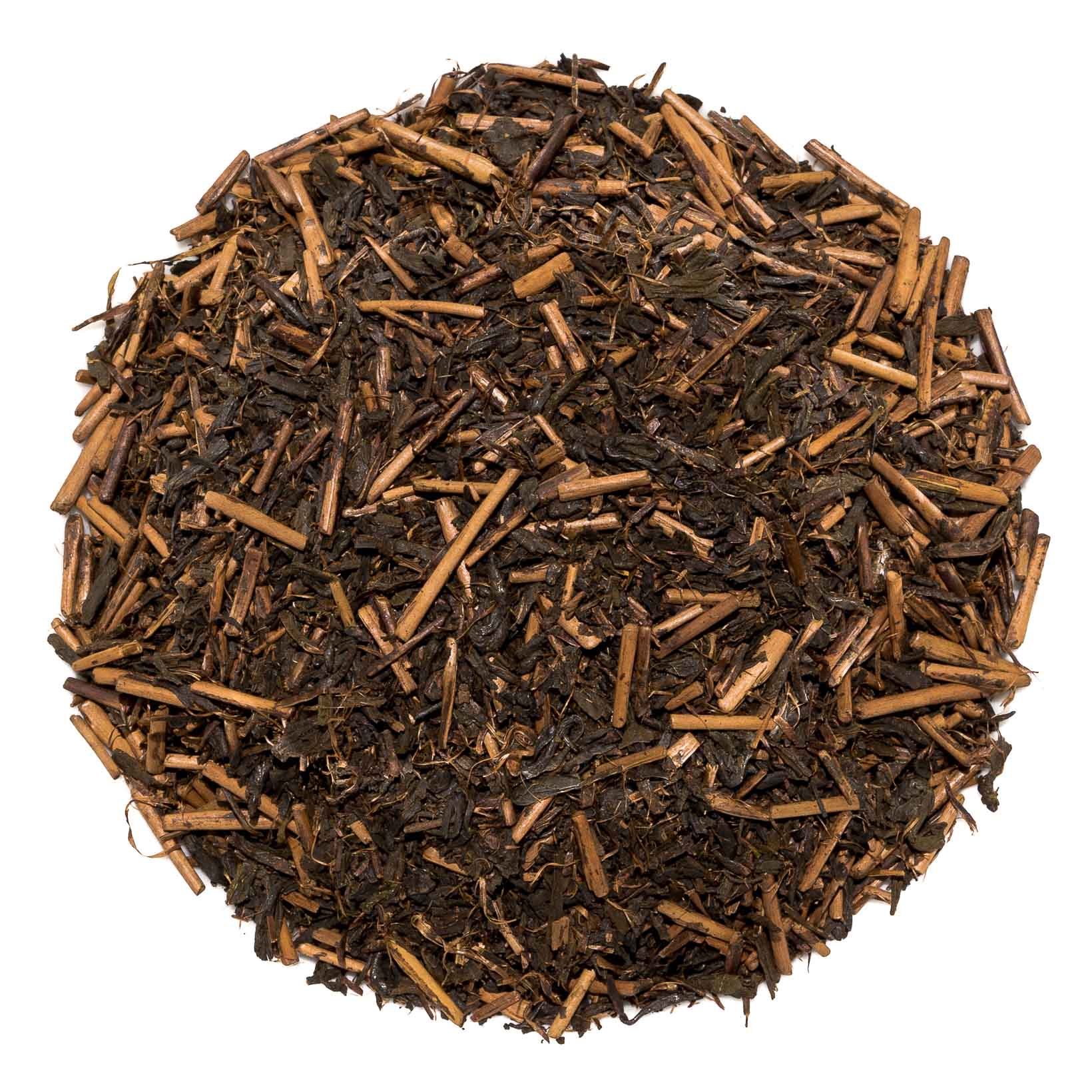
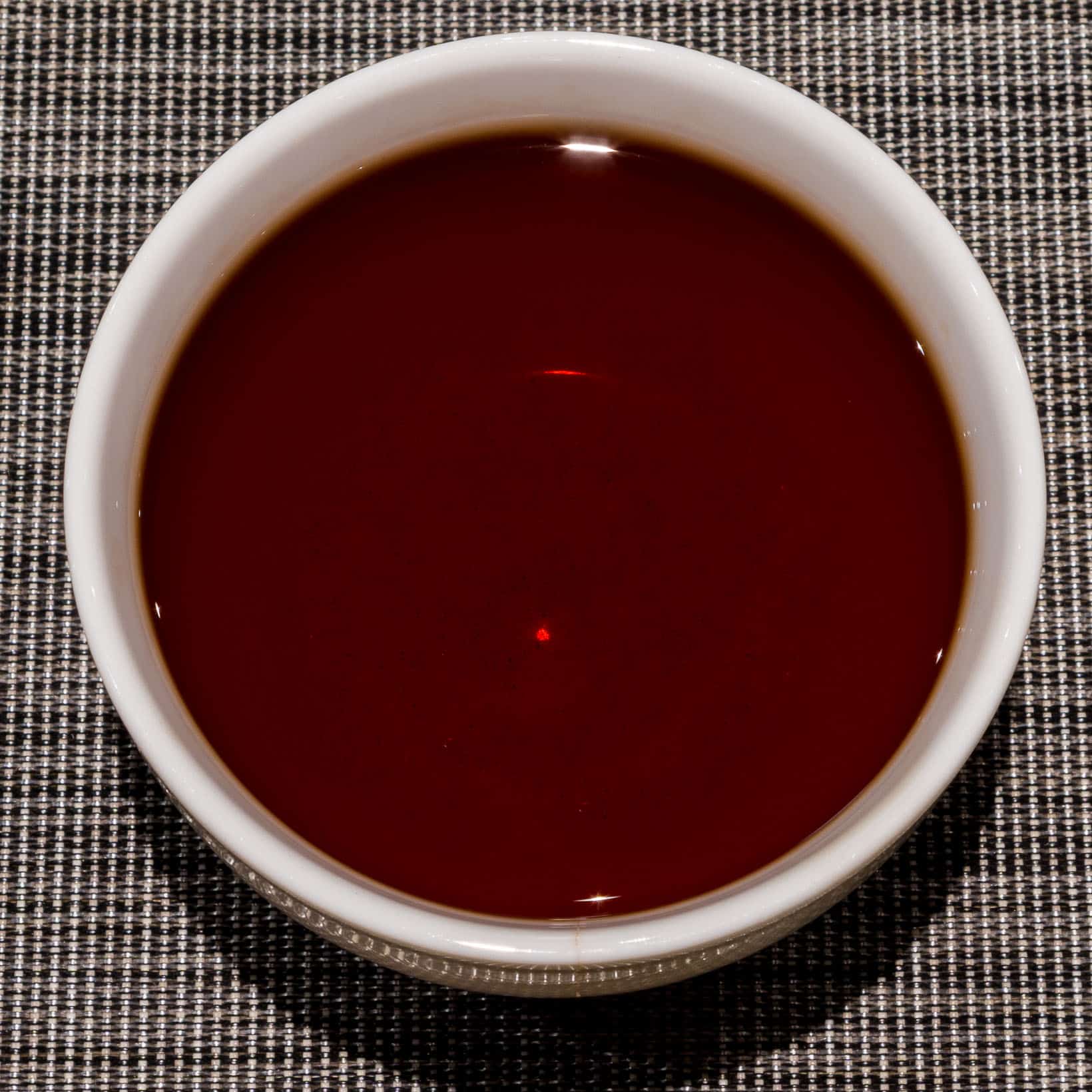
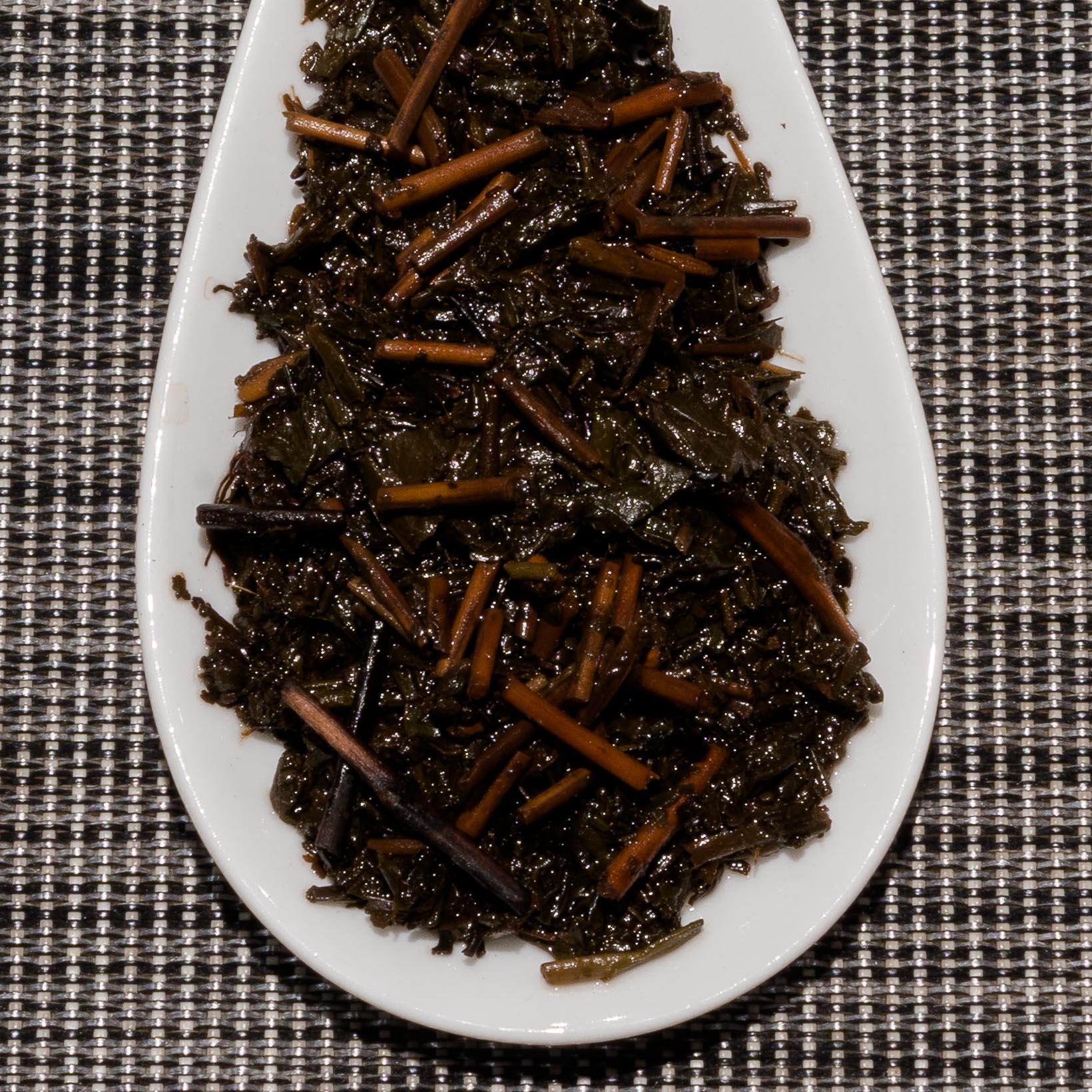
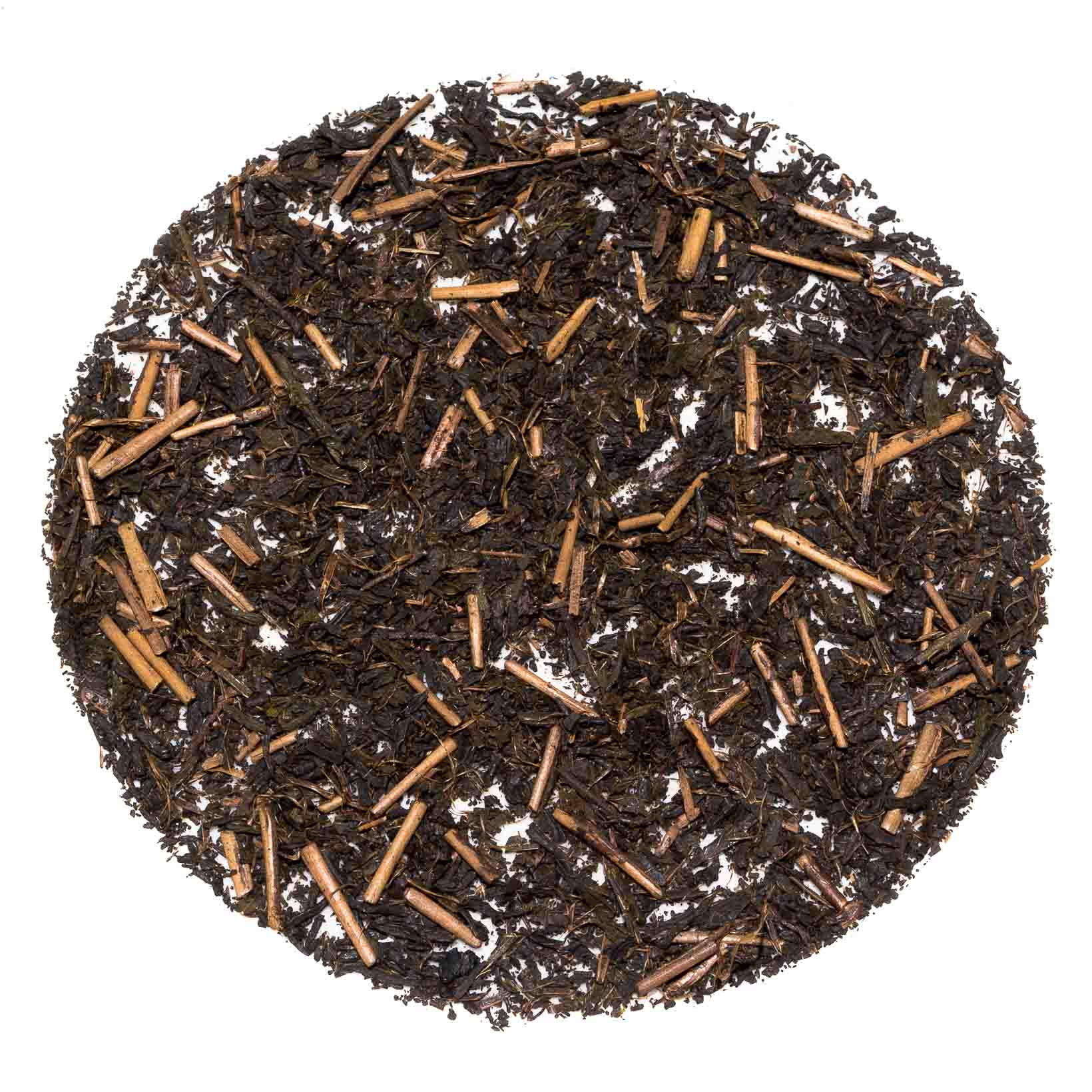
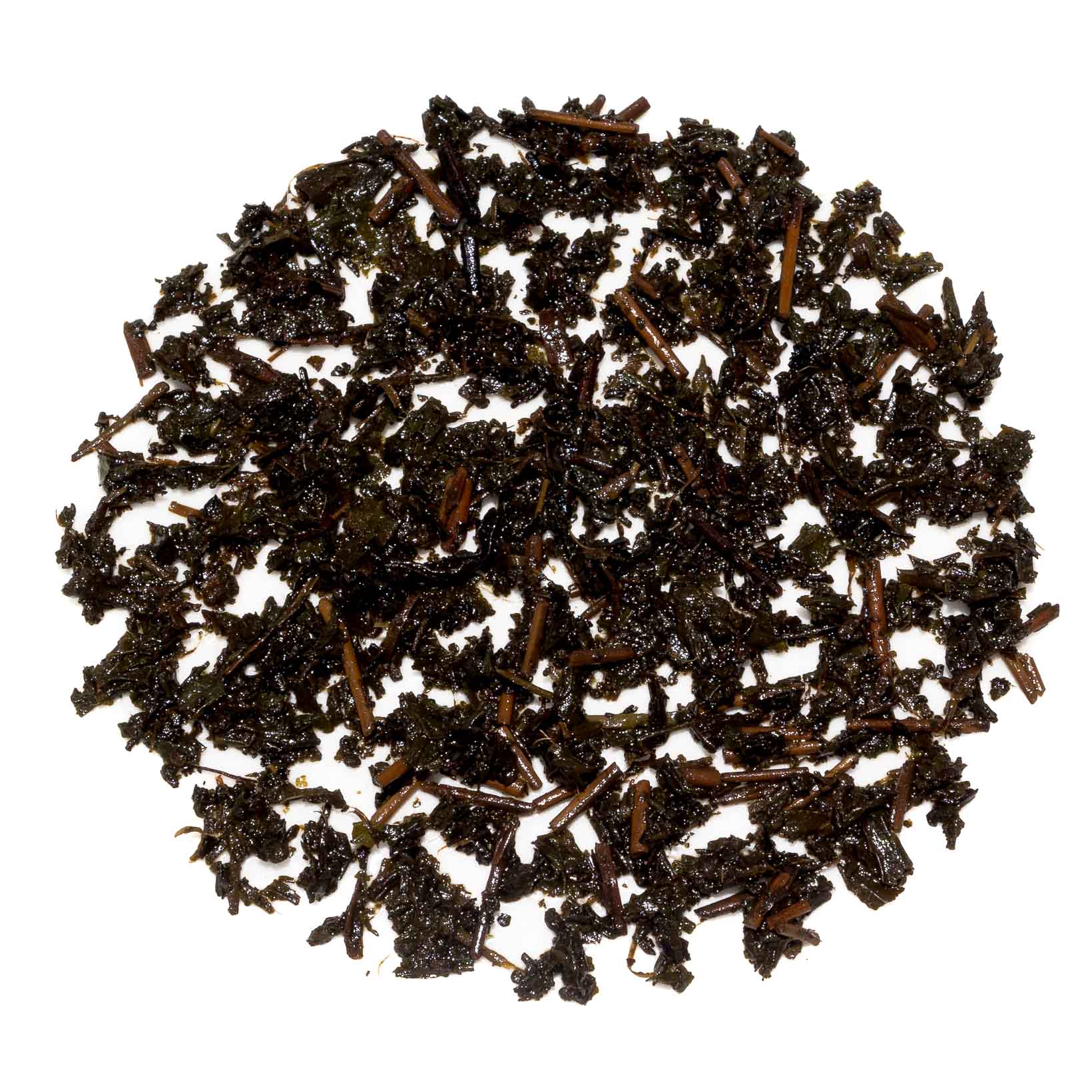
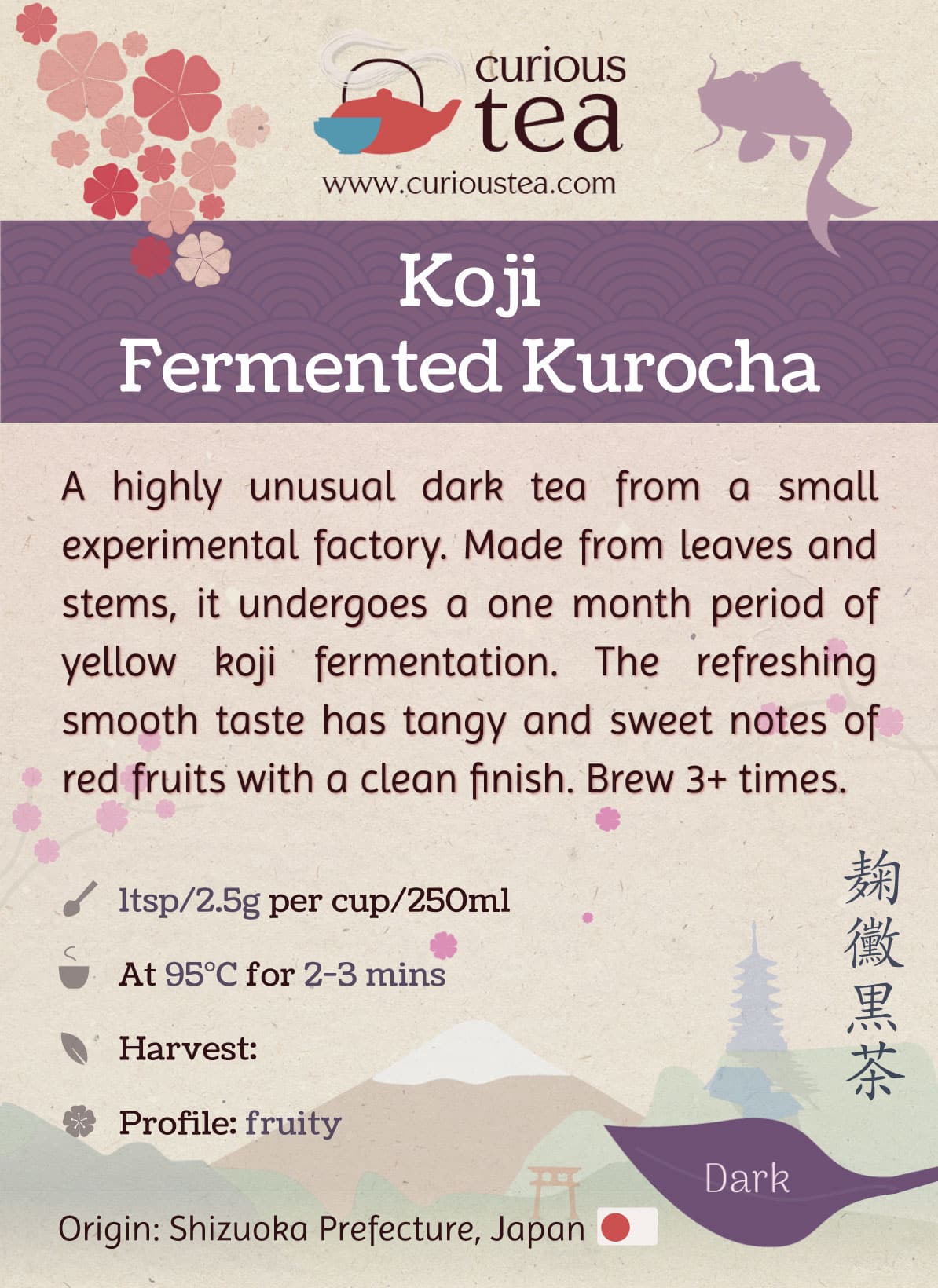


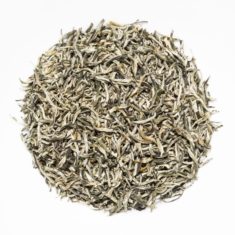 Chinese White
Chinese White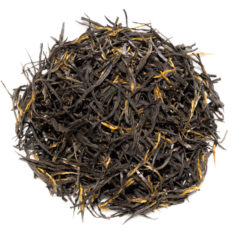 Chinese Black
Chinese Black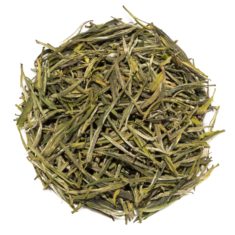 Chinese Green
Chinese Green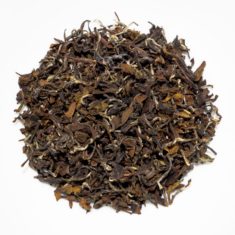 Taiwanese Oolong
Taiwanese Oolong